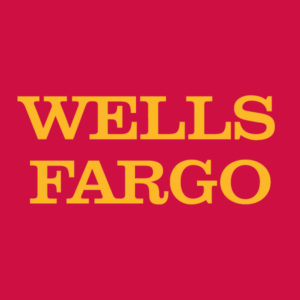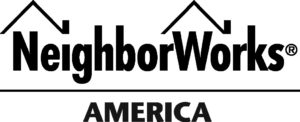Kansas City Area NeighborhoodLIFT
Frequently Asked Questions
Program Overview
Q. What are the terms of the NeighborhoodLIFT funding?
A. NeighborhoodLIFT funds are provided as a five-year forgivable loan program for owner-occupied properties. As long as the borrower resides in the home, the loan will be forgiven at 20 percent each year on the anniversary date of settlement. If the house is no longer a principal residence or the property is transferred, repayment of the balance of funds will be immediately due. If you qualify for the military benefit, check with Beyond Housing on repayment terms.
Q. Are there income restrictions for eligible borrowers?
A. Yes. Income limits are set for each market for NeighborhoodLIFT funds. The income limits are calculated based on borrower income in connection with household size. Income limits are higher for military service members, veterans, law enforcement officers, Pre-K-12th grade teachers, firefighters and emergency medical technicians. View Income Limits View First Responder, Military & Teacher Benefit Information View additional Military Benefit Information
Q. If a person living in the home is not included on the loan to purchase the home does their income count in the calculation of household income?
A. No. Only borrower income is calculated. View income limits.
Q. Are there other financial requirements to participate in the program?
A. You may be required to make an additional down payment contribution from your own funds if your ‘remaining liquid assets’ at the time of your eligibility determination session will exceed $20,000.
Q. How are liquid assets determined?
‘Remaining liquid assets’ are defined as your available funds in bank accounts such as checking, savings or money market accounts that are readily accessible without withdrawal restrictions or penalties after you have met any out-of-pocket settlement requirements from your own funds.
Liquid assets do not include Retirement Accounts (such as 401(k), IRA or pension accounts), Investment Accounts (such as stock, bond or mutual funds), Certificates of Deposit (CDs), Business Checking or Savings Accounts.
Liquid asset determinations and contribution requirement estimates are made at the time of your Eligibility Determination Session. Liquid asset funds that are subsequently transferred to restricted accounts after your Eligibility Determination Session will not be excluded from contribution calculation requirements.
Q. What first mortgage lenders are eligible to participate in the NeighborhoodLIFT program?
A. Here is a complete list of participating partner lenders. view the list here
Q. What is homebuyer education and how do I get it?
A. Homebuyer education is an eight-hour class that teaches about the home buying process. Homebuyer education must be provided by a HUD-Approved Housing Counseling Agency that has adopted the National Industry Standards for Homeownership Education and Counseling. More information and a list of approved providers can be found here.
Q. I have a homebuyer education certificate from an agency that is not HUD Approved. Will that be accepted?
A. No. Only homebuyer education certificates from HUD-Approved Housing Counseling Agencies that have adopted the National Industry Standards are eligible for NeighborhoodLIFT funds. View Home Buyers Education List here
Q. Can I own another home and still qualify for the NeighborhoodLIFT program?
A. Yes, if you currently own a home but will be selling it prior to closing on the NeighborhoodLIFT property, you can still be eligible for the program. At the time of closing you may not own any additional properties including investment properties.
Q. Are short sale properties eligible for NeighborhoodLIFT funds?
A. Short sale properties are eligible for the program. The purchase agreement for the short sale property must be signed by the buyer and the seller to apply for NeighborhoodLIFT funds. The lender (lien holder of short sale property) must ratify the agreement prior to closing. NeighborhoodLIFT funds can be used in connection with the financing of a Wells Fargo short sale but only if Wells Fargo is not the new first mortgage lender on the short sale purchase. Another lender must originate the new first mortgage loan.
Q. What expenses can I use the NeighborhoodLIFT DPA Funds to cover as part of my purchase of a home?
A. NeighborhoodLIFT down payment assistance funds may be used for any eligible purpose including closing cost assistance, down payment assistance, or borrower minimum out-of-pocket investment if allowed by the first mortgage loan program. NeighborhoodLIFT funds may cover the closing costs or out-of-pocket requirements of a FHA first mortgage or other type of first mortgage loan, however for a FHA mortgage the borrower must still provide their own 3.5% down payment. You should consult directly with your first mortgage lender and Beyond Housing to determine how NeighborhoodLIFT program funds may be used in connection with your home purchase.
Q. Can I qualify for additional incentives along with NeighborhoodLIFT funds?
A. Yes. There may be several programs eligible for layering incentives together with NeighborhoodLIFT funding. Programs sponsored by local municipalities or the state of Missouri could potentially be included. For information on other incentive programs, contact Westside Housing.
Q. How do I know if I am eligible for additional incentive programs?
A. Eligibility for each program is determined by the program administrators. Contact them directly to participate in their programs.
Q. Are there any properties that are not eligible for NeighborhoodLIFT funds?
A. Yes. Wells Fargo REO (real estate owned) properties are not eligible for NeighborhoodLIFT funds. To learn if a property is a Wells Fargo REO click here. In addition, properties outside of the defined geographic area are not eligible. View the map here
Get Ready for the NeighborhoodLIFT Event
Q. What can I do now to prepare for NeighborhoodLIFT?
A. First, register here to schedule an appointment to attend the July 27-28 event. Second, participate in a homebuyer education class, list found here. Third, meet with a participating lender, view the list here, and obtain a pre-approval for a mortgage. Fourth, select a realtor and find a home located in Clay, Jackson or Cass County. Note: Any of these steps can be completed prior to the NeighborhoodLIFT event.
Q. What do I need to bring with me to the event?
A. A list of required documents to determine NeighborhoodLIFT eligibility is available here. Additionally, you will either need your pre-approval letter from your participating lender, lender list here, pre-approval letter from a non-participating lender or the documents required by Wells Fargo for pre-approval. A list of documents required by Wells Fargo is available here. NOTE: The documents required for determining NeighborhoodLIFT eligibility and for qualifying for a Wells Fargo pre-approval are NOT the same. Please be sure to review both lists.
Q. Is there a way to participate in NeighborhoodLIFT without attending the event on July 27-28?
A. Maybe. If not all of the NeighborhoodLIFT funds are allocated at the July 27-28 event, eligible homebuyers will have the opportunity to claim the remaining funds on our website after the event.
If all funds are allocated at the July 27-28 event, then those holding NeighborhoodLIFT reservations will have 60 days to sign a contract on an eligible property. These reservations will expire on September 27, 2018. Please check our website beginning September 28 to see if funds from expired NeighborhoodLIFT reservations have become available.
In either case, to claim funds after the event, homebuyers will need a signed purchase and sale agreement for a property in Clay, Jackson or Cass County and a pre-approval from a participating NeighborhoodLIFT lender. Funds will be allocated on a first-come, first-served basis; no waiting list will be maintained.
Q. Will there be first mortgage lenders other than Wells Fargo at the July 27-28 event?
A. No. Other lenders will need to provide a pre-approval letter to their clients prior to the event. Wells Fargo will be the only lender present at the event. List of Participating First Mortgage Lenders
What Happens After the NeighborhoodLIFT Event
Q. What do I need to do following the NeighborhoodLIFT event?
A. Following the NeighborhoodLIFT event, clients who receive an allocation of funds will have 60 days to obtain a contract on a home and submit the required documents to Beyond Housing. Clients who do not complete all of these steps will lose their NeighborhoodLIFT allocation. Clients are encouraged to submit the documents following the NeighborhoodLIFT event as soon as they are available. Please note successful completion of the eight-hour HBE course is required prior to closing.
Q. Once a buyer is determined to be eligible for NeighborhoodLIFT, how quickly will the process move forward?
A. Once a buyer has an executed contract, they should request an Eligibility Determination Session. Borrowers should complete their Eligibility Determination Session no less than 21 calendar days prior to the closing date listed on their purchase and sale agreement. Even if a borrower has a purchase and sale agreement, no closings may take place before August 27, 2018. Once a borrower is determined to be eligible, a commitment letter will be issued with a copy sent to the first mortgage lender. The first mortgage lender will then prepare documents for closing and provide copies of the required documents to Beyond Housing at least 14 calendar days prior to closing. Beyond Housing will then have all documents prepared for the closing.
Q. What documents do my lender and I have to submit to Beyond Housing so that I can settle on my home using NeighborhoodLIFT funds?
A. View a Description of the Documents Required Here
Q. Will extensions be allowed for clients who do not have a contract on a home within 60 days of the event?
A. No. Extensions are only available for clients who have met the program requirements and are preparing for settlement.
Q. If a contract falls through can the client change to another property?
A. It depends on which step the client is in the process. If this happens the client should follow up with Beyond Housing directly.
Q. What happens if I can’t become pre-approved for a first mortgage?
A. Clients who are not able to qualify for a loan will be offered financial fitness classes and counseling following the event. The classes and counseling are designed to help prepare clients to get approved for a first mortgage. Contact Westside Housing to find out if there is a fee for these classes. Financial fitness classes provide information on how to manage income and create a budget based on that income, how to save, how to obtain a credit report, as well as how to apply for and use credit.


